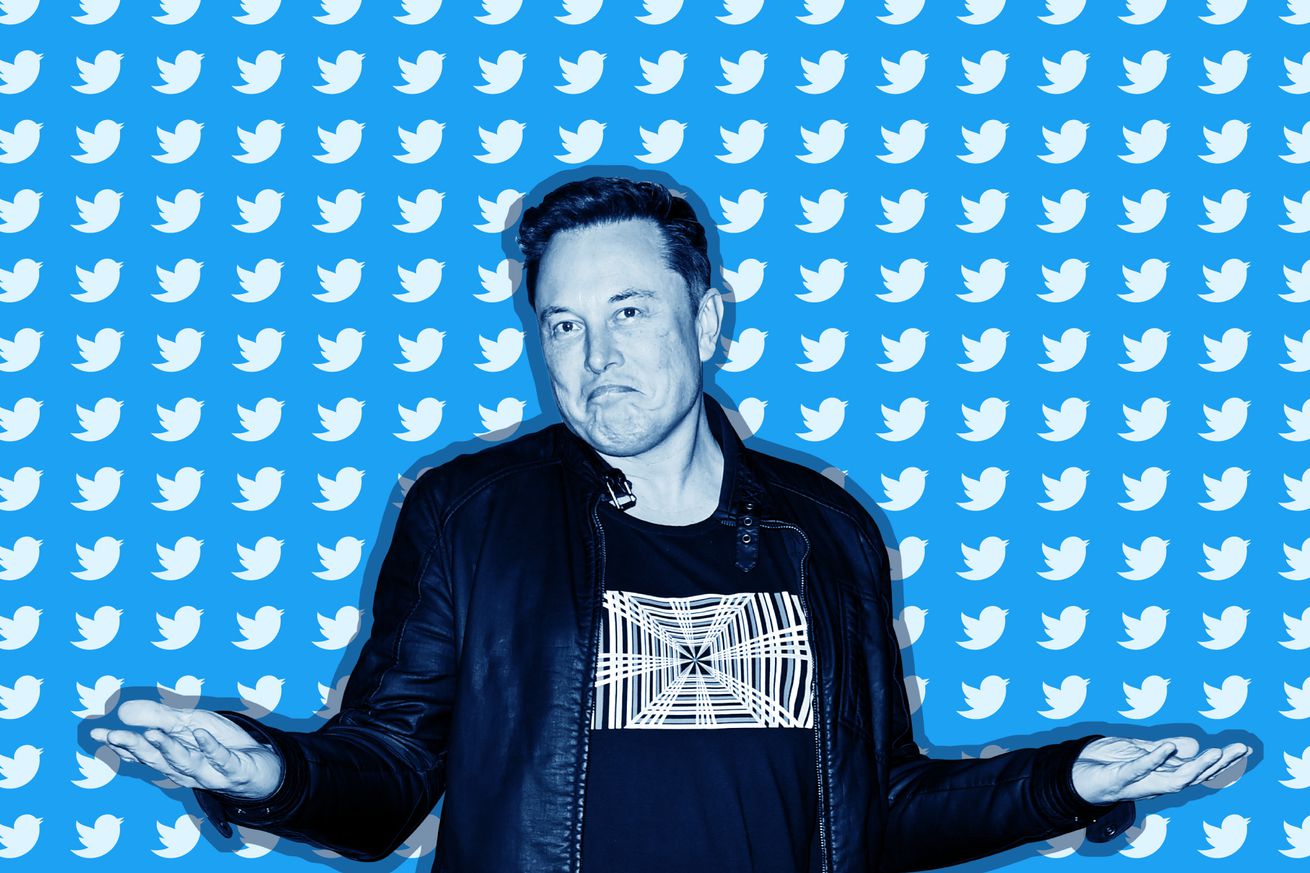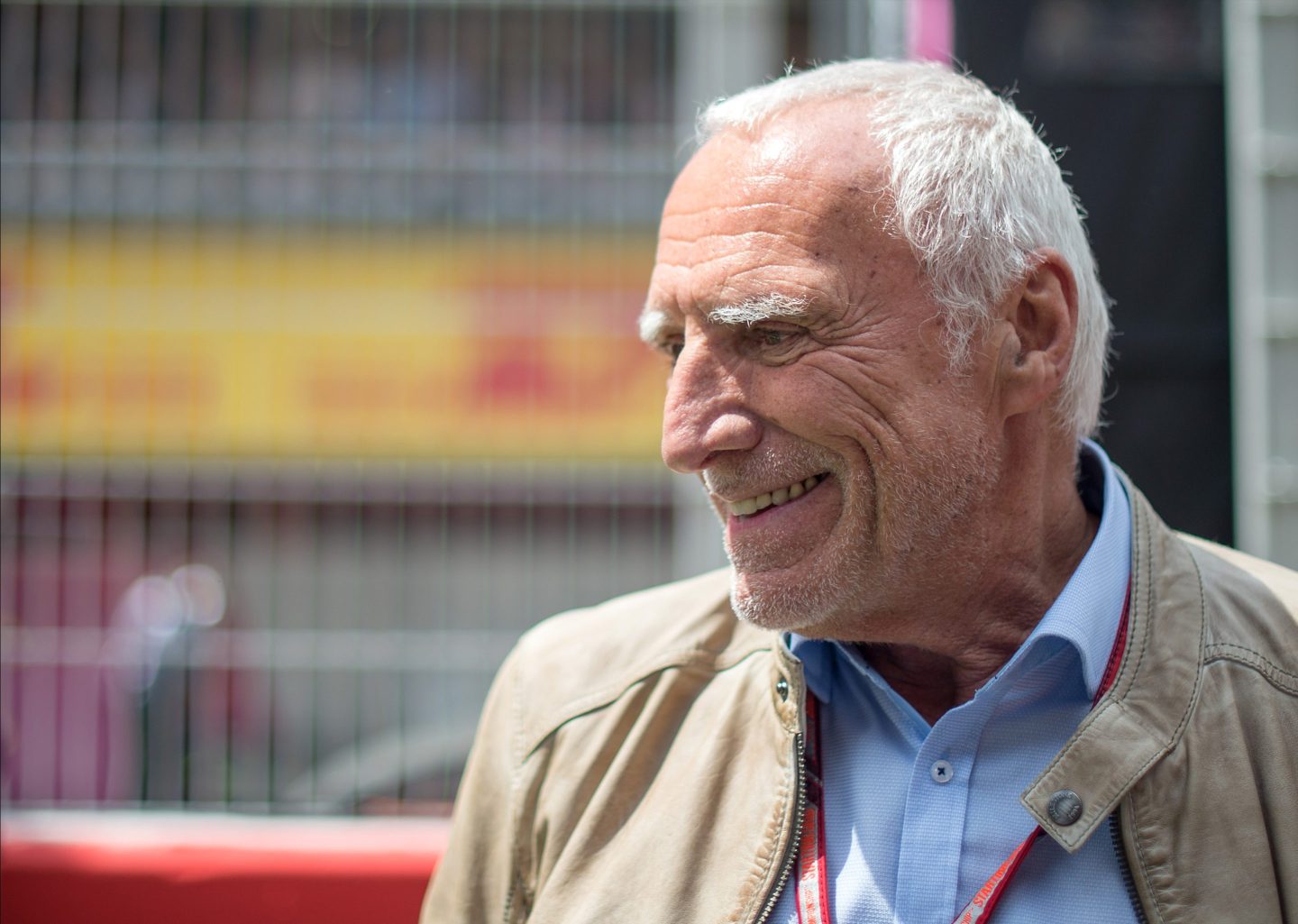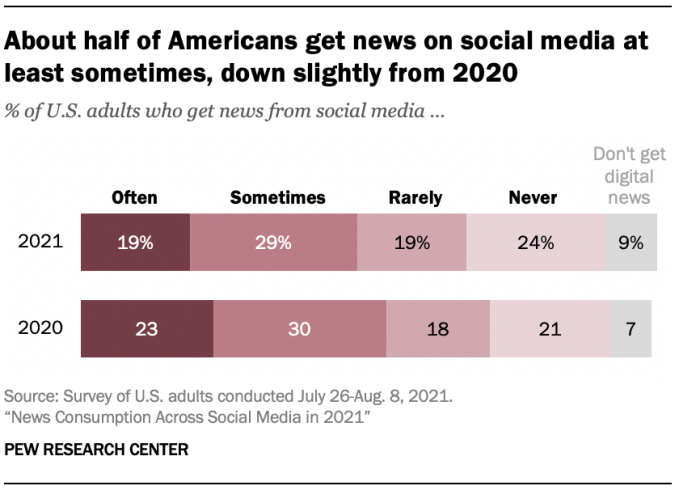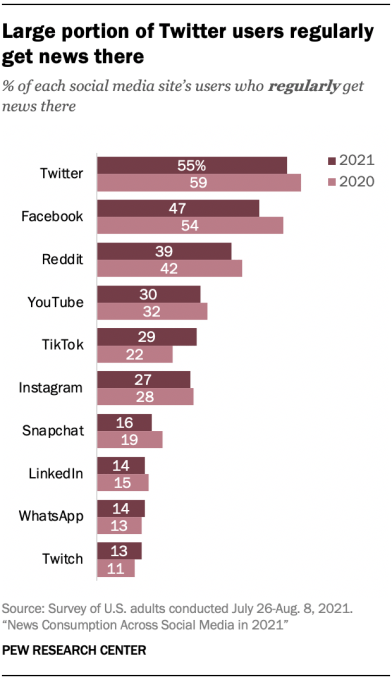![]()
CompuSolutionX is a full-service computer consulting firm, specializing in Web Design, Information Technology solutions, and Internet Marketing.
T (281) 733 3312
Email: info@compusolutionx.com
CompuSolutionX
6666 Harwin Dr. Suite 400, Houston, TX
CompuSolutionX Blog

How to avoid being caught out by ransomware
- Published in Networking, Technology
First Fortune500 company pauses ads on Twitter after Elon Musk’s acquisition

General Motors has temporarily halted advertising on Twitter after Tesla CEO Elon
Musk completed his $44 billion acquisition of the social network on Friday (via
CNBC). The automaker says it’s pausing paid advertising on Twitter to evaluate “the direction of the
platform” under Musk’s leadership, but will continue to use the network to interact with customers.
“We are engaging with Twitter to understand the direction of the platform under their new ownership,”
an emailed statement provided to The Verge by GM spokesperson Dan Flores says. “As is normal course of
business with a significant change in a media platform, we have temporarily paused our paid advertising. Our
customer care interactions on Twitter will continue.”
It’s unclear whether GM’s decision to temporarily pull ads from Twitter stems from the company’s
rivalry with Tesla, Musk’s
vision of making Twitter a “free speech” platform, or both. On Thursday, a
report from the Wall Street Journal highlighted advertisers’ concerns with the future of
content moderation on the Musk-owned version of Twitter, as Musk has
previously hinted at reversing former
President Donald Trump’s ban. Musk attempted to reassure advertisers by posting a tweet saying he will
not
let Twitter become a “free-for-all hellscape,” but reiterated his goal of creating “a digital town
square, where a wide range of beliefs can be debated in a healthy manner.”
Twitter’s new owner has also said he would establish
a “content moderation council” with members who have “widely diverse viewpoints,” and won’t make any
major decisions to take down content or reinstate a user’s account without the council’s approval. Musk says he
still has yet to make any changes to
Twitter’s content moderation policies, but he
promptly fired Twitter’s policy chief, Vijaya Gadde, after he assumed ownership of the company.
GM has doubled down on its efforts to compete with electric vehicle (EV) rivals like Tesla, increasing
its investment in electric and autonomous vehicles to $35 billion through 2025, This past July, GM CEO
Mary Barra told the
Associated Press that she believes GM’s EVs will outsell Tesla by the middle of the decade, and
earlier this month, the automaker announced plans
to take over Tesla on the energy front as well, creating a new division to sell solar panels and
batteries.
- Published in Uncategorized
Red Bull’s Dietrich Mateschitz, the Austrian billionaire who transformed F1, soccer, and energy drinks, dies at 78

Austrian billionaire Dietrich Mateschitz, the co-founder of energy drink company Red Bull and
founder and owner of the Red Bull Formula One racing team, has died. He was 78.
Officials with the Red Bull racing team at the United States Grand Prix in Austin, Texas, announced
Mateschitz’s death Saturday. There was no immediate word where he died, or a cause of death.
Mohammed Ben Sulayem, president of motor sports governing body FIA, said Mateschitz was “a towering figure in
motor sport.”
“The thoughts of all the FIA family are with his loved ones at this time and he will be greatly missed.”
Mateschitz gained fame as the public face of Red Bull, an Austrian-Thai conglomerate that says it sold nearly
10 billion cans of its caffeine and taurine-based drink in 172 countries worldwide last year.
Mateschitz not only helped the energy drink become popular around the world, but also built up a sports,
media, real estate and gastronomy empire around the brand.
With the growing success of Red Bull, he significantly expanded his investments in sports, specifically
motorsports and extreme sports, and Red Bull now operates football clubs, ice hockey teams and F1 racing
teams. Red Bull also has contracts with hundreds of athletes in various sports and a deep driver development
program to get racers to the top level.
“It’s been hard news for everyone — what he has meant for Red Bull, and of course the sport, and especially
for me,” said Max Verstappen, who wrapped up his second consecutive F1 title two weeks ago.
Verstappen on Sunday at Circuit of the Americas will try to tie Michael Schumacher and Sebastian Vettel with
an F1-record 13 victories in a season, and he’ll also attempt to clinch the constructors championship for
Red Bull.
“What he has done for me, my career so far, and in general my life, it’s really tough, it’s a really tough
day,” Verstappen said. “There’s still a race ahead and we’re going to try to make him proud tomorrow.”
Mateschitz and Thai investor Chaleo Yoovidhya founded the company in 1984 after Mateschitz recognized the
potential in marketing Krating Daeng – another energy drink created by Chaleo – for a western audience. Red
Bull says Mateschitz worked on the formula for three years before the modified drink was launched under its
new name in his native Austria in 1987.
Under Mateschitz’ stewardship, Red Bull quickly increased its market share, first in Europe, then in the
United States, helped by marketing campaigns promoting the drink’s claimed stimulating properties and
extensive sponsorship agreements in motorsports, soccer, extreme sports and the music industry.
The Red Bull Racing team has enjoyed success in Formula 1, winning the constructors’ championship in 2010,
2011, 2012 and 2013, while German driver Vettel won four drivers’ championships in row while signed to the
team.
Verstappen started in Red Bull’s driver development program and became the youngest driver in F1 history to
start a grand prix when he started with the junior Toro Rosso team at age 17 in 2015. The Dutchman is
now the most dominant driver in the sport.
“So many of us have to be so grateful to him for the opportunities he’s provided and the vision he had, the
strength of character, and never being afraid to follow dreams, and chase dreams. That’s what he did here in
F1, proving that you can make a difference,” Red Bull team principal Christian Horner told Sky Sports F1.
“We’re just incredibly grateful for him, everything that he’s done, everything that he’s supported us with
over the years,” Horner added. “So many drivers, so many team members, so many people in this pit lane owe
him so much. He was incredibly proud of the team, incredibly proud of everything we’ve done and have been
achieving, and he’s been a passionate supporter and the backbone of everything that we do.”
Red Bull operates soccer teams in top divisions across Austria, Germany, Brazil and the United States. The
company started by buying Austrian club SV Austria Salzburg in 2005 and rebranding it in the company colors
under the name Red Bull Salzburg.
It repeated the move in Germany, where it bought fifth-tier club SSV Markranstädt in 2009, rebranded it as
RasenBallsport Leipzig, and financed its steady progress through the league system till it was promoted to
the Bundesliga in 2016. German league regulations prevented the company from naming the team Red Bull
Leipzig – its name in German, RasenBallsport, means “grass ball sport Leipzig” but the club just refers to
itself as RB Leipzig.
Mateschitz also made headlines for his populist views. He previously criticized German chancellor Angela
Merkel for her handling of the refugee crisis over 2015-16. The Austrian Servus TV station, owned by Red
Bull Media House GmbH, is known for promoting right-wing provocative views.
Mateschitz bought the Jaguar Racing team from previous owner Ford at the end of 2004 and rebranded it as Red
Bull for the 2005 season. Later that year, he then also bought Minardi and renamed it Toro Rosso, astutely
using it as a feeder team for Red Bull.
—Auto Racing Writer Jenna Fryer and Associated Press Sports Writer Jerome Pugmire contributed to this
report.
- Published in Uncategorized
Ben Rubin, who founded Houseparty, Meerkat and Slashtalk, will peer into the future of social at Disrupt
Ben Rubin understands where social is going. In fact, he understands it so well, he’s always there early.
Rubin is the current CEO and co-founder of Slashtalk and an angel investor who scouts for Sequoia Capital. He previously founded Houseparty and Meerkat — apps that pioneered group video chat and mobile livestreaming, respectively — shaping massive social trends in their earliest stages.
In 2015, Meerkat took SXSW by storm. The app seemed to have captured lightning in a bottle, and entrenched players in social noticed. Twitter was early to the trend too, having bought Periscope earlier that year, and leveraged Meerkat’s momentum to attract people to its own product. Half a year later, Facebook vaulted into the space with Facebook Live.
Meerkat didn’t keep up, but it did transform. In 2016, the same team launched Houseparty, a group video chat app geared toward connecting established friends in casual virtual hangouts rather than streaming to the masses. Three years later, in a world not yet ravaged by the pandemic, it sold to Fortnite maker Epic Games.
With people driven indoors and away from IRL social interactions, Houseparty boomed. In a single month during the pandemic’s early phase, the app saw 50 million new signups and hit the top of the charts across the iOS App Store and Google Play. But Houseparty struggled to retain users, and by fall of 2021 Epic announced that it would unceremoniously wind down the project and pull Houseparty from app stores.
Only time will tell if Houseparty’s technology will play a role in Epic’s vision for the metaverse — an interconnected series of seamless virtual worlds for people to explore and socialize in. But regardless of the app’s eventual fate, Houseparty’s take on social spontaneity and casual group video was ahead of its time.
If anyone is well positioned to know where social networks are going in the near future, it’s probably Rubin. He’s now working on Slashtalk, “an anti-meeting tool for fast, decentralized conversations.” Slashtalk’s ethos echoes both Meerkat and Houseparty’s belief in social serendipity, but this time Rubin is focused on the workplace rather than consumer social.
Rubin will join us onstage at TechCrunch Disrupt 2021 to talk about his new company and the trends powering current upheavals in social networking, from decentralization and ownership to the future of a connected post-pandemic world.
- Published in Uncategorized
Study finds half of Americans get news on social media, but percentage has dropped
A new report from Pew Research finds that around a third of U.S. adults continue to get their news regularly from Facebook, though the exact percentage has slipped from 36% in 2020 to 31% in 2021. This drop reflects an overall slight decline in the number of Americans who say they get their news from any social media platform — a percentage that also fell by 5 percentage points year-over-year, going from 53% in 2020 to a little under 48%, Pew’s study found.
By definition, “regularly” here means the survey respondents said they get their news either “often” or “sometimes,” as opposed to “rarely,” “never,” or “don’t get digital news.”
The change comes at a time when tech companies have come under heavy scrutiny for allowing misinformation to spread across their platforms, Pew notes. That criticism has ramped up over the course of the pandemic, leading to vaccine hesitancy and refusal, which in turn has led to worsened health outcomes for many Americans who consumed the misleading information.
Despite these issues, the percentage of Americans who regularly get their news from various social media sites hasn’t changed too much over the past year, demonstrating how much a part of people’s daily news habits these sites have become.

Image Credits: Pew Research
In addition to the one-third of U.S. adults who regularly get their news on Facebook, 22% say they regularly get news on YouTube. Twitter and Instagram are regular news sources for 13% and 11% of Americans, respectively.
However, many of the sites have seen small declines as a regular source of news among their own users, says Pew. This is a different measurement compared with the much smaller percentage of U.S. adults who use the sites for news, as it speaks to how the sites’ own user bases may perceive them. In a way, it’s a measurement of the shifting news consumption behaviors of the often younger social media user, more specifically.
Today, 55% of Twitter users regularly get news from its platform, compared with 59% last year. Meanwhile, Reddit users’ use of the site for news dropped from 42% to 39% in 2021. YouTube fell from 32% to 30%, and Snapchat fell from 19% to 16%. Instagram is roughly the same, at 28% in 2020 to 27% in 2021.
Only one social media platform grew as a news source during this time: TikTok.
In 2020, 22% of the short-form video platform’s users said they regularly got their news there, compared with an increased 29% in 2021.
Overall, though, most of these sites have very little traction with the wider adult population in the U.S. Fewer than 1 in 10 Americans regularly get their news from Reddit (7%), TikTok (6%), LinkedIn (4%), Snapchat (4%), WhatsApp (3%) or Twitch (1%).

Image Credits: Pew Research
There are demographic differences between who uses which sites, as well.
White adults tend to turn to Facebook and Reddit for news (60% and 54%, respectively). Black and Hispanic adults make up significant proportions of the regular news consumers on Instagram (20% and 33%, respectively.) Younger adults tend to turn to Snapchat and TikTok, while the majority of news consumers on LinkedIn have four-year college degrees.
Of course, Pew’s latest survey, conducted from July 26 to Aug. 8, 2021, is based on self-reported data. That means people’s answers are based on how the users perceive their own usage of these various sites for newsgathering. This can produce different results compared with real-world measurements of how often users visited the sites to read news. Some users may underestimate their usage and others may overestimate it.
People may also not fully understand the ramifications of reading news on social media, where headlines and posts are often molded into inflammatory clickbait in order to entice engagement in the form of reactions and comments. This, in turn, may encourage strong reactions — but not necessarily from those worth listening to. In recent Pew studies, it found that social media news consumers tended to be less knowledgeable about the facts on key news topics, like elections or Covid-19. And social media consumers were more frequently exposed to fringe conspiracies (which is pretty apparent to anyone reading the comments!)
For the current study, the full sample size was 11,178 respondents, and the margin of sampling error was plus or minus 1.4 percentage points.
- Published in Uncategorized
- 1
- 2


Recent Comments